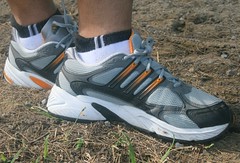Hormones are chemical substances produced in minute quantities by the endocrine glands and transported by the blood to the target organs where they exert a profound effect. After exerting its effect in the target organ, it is then destroyed in the liver and then transported to the kidneys to be excreted.
DIFFERENCES BETWEEN NERVOUS CONTROL AND HORMONAL CONTROL
ADRENALINE
DIFFERENCES BETWEEN NERVOUS CONTROL AND HORMONAL CONTROL
- NC involves nervous impulses whereas HC involves hormones
- Impulses are transmitted by neurones in NC whereas hormones are transmitted by blood in HC
- The response is very quick in NC and slower in HC
- Response in NC is usually short-lived whereas in HC it may be short-lived or long-lived
- NC may be voluntary or involuntary whereas HC is always involuntary
- NC is usually localised and in HC it may affects more than one target organ
ADRENALINE
- Adrenaline is a hormone produced by the Adrenal gland located just above each kidney
- Circumstances in which it is secreted: Usually in conditions of fear, anger and anxiety or in any other emergency situation
- Effect 1: Increases metabolic rate. This means that more energy is released in tissue respiration
- Effect 2: Increases in rate of heartbeat and rise in blood pressure so that oxygen and glucose are carried faster to the muscles
- Effect 3: Constriction of arterioles in skin which causes pallor. As a result of this more blood is sent to the muscles
- Effect 4: Causes the conversion of more glycogen stored in the liver into glucose so that the glucose can be used in tissue respiration
- Effect 5: Dilates the pupil of the eye so that more light can enter the eye. Hence this provides clearer vision
- Effect 6: Hair muscles may contract producing "goose pimples"
- Insulin is a hormone produced by the Islets of Langerhans in the pancreas
- Secretion of insulin is due to an increase in concentration of glucose in the blood
- Effect 1: Causes the conversion of glucose to glycogen for storage in the liver and muscles
- Effect 2: Enables tissue cells to oxidise glucose to produce energy in tissue respiration (Remember the "Gate Keeper")
- Both effects help to control the amount of glucose in the blood
